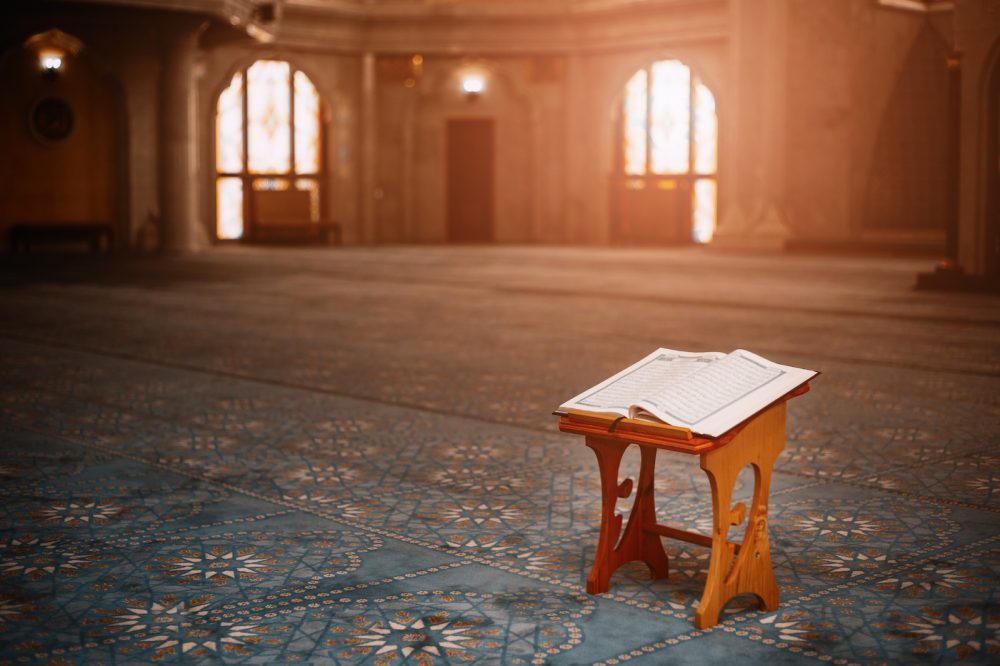
Ramadan Reflection | The Review of Religions

© Shutterstock
Nila Ahmad, USA
As a child, I loved snuggling back under the covers after Fajr, the morning prayer. If it was a school day, I would often calculate the minutes until I needed to wake up. If not, I would just sigh in contentment at the thought of sleeping with abandon. But before I could fall asleep, the soft melody of my mother’s voice reached me through the walls. I could hear the gentle hum of her recitation of the Holy Qur’an, her tilawat. Within minutes, a second tilawat joined my mother’s, that of my father. His by contrast was loud and sonorous. The two voices would meld and a feeling of warmth and security would blanket me and lull me to sleep.
We grew up in the middle of nowhere. We were the lone Muslim family and the closest mosque was two and a half hours away. MTA (Muslim TV Ahmadiyya) was not yet available for streaming on our TV, so my parents were the only practical example of my religion and culture. While the world outside lured us with its secular trappings, my parents wrapped the four walls of our home in the warmth and security of Islam, punctuated with the flavour and spice of our Pakistani heritage.
Of the many memories I have from my childhood, some of my favourite centre around Ramadan. At night my mother would set the table with the breakfast dishes. She would situate the frying pan and spatula on the stovetop just so, to ensure easy and quick access for the next morning. At sehri, the period of time before dawn when we ate breakfast before fasting, the lights were ablaze within our home. If I were to look outside, the street would be dark and lifeless, but in our home, the kitchen was abuzz with activity and excitement. Later in the day, as iftari (the time of breaking the fast) neared, she would set the table for tea and pan-fried almonds were lovingly served in a cut glass dish.
When it was time to break the fast, my parents would call us to eat a date, and after Maghrib prayer, read at sunset, we would gather around the table while my parents sipped at their hot tea. It was often around that table that discussions would turn to stories from their childhood and of their elders. I realized much later that while I was crunching on a samosa, my parents were conveying their Islamic values. The days of Ramadan would pass quickly, punctuated with my parent’s tilawat, my mother teaching us various Quranic verses, my father leading us in congregational prayer, and sudden pop quizzes on general Islamic knowledge. It is as the Holy Prophet Muhammad (sa) stated, “The best action in the sight of Allah is that which is done with regularity, even if it is small.”
The habits and traditions my parents practiced over and over were like etched lines, leaving deeply set traces. They were small, but they lingered. For me, it was my mother’s practiced hands knotting her niqab, her head covering; the rows of sturdy green and brown binded religious books with their gold lettering in my father’s study; and the duet of my parent’s tilawat every morning after Fajr prayer.
About the Author: Nila Ahmad lives in the northeastern United States with her family. She has a particular interest in dispelling misconceptions around women’s status in Islam. She currently serves as the Head of the Women’s Section for The Review of Religions.



